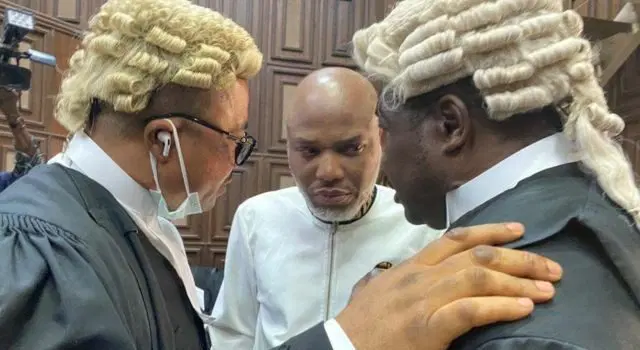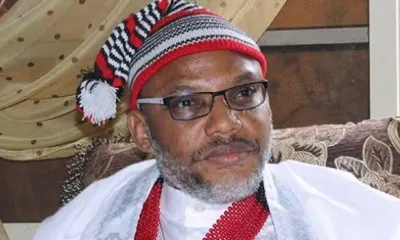A Federal High Court has given Nnamdi Kanu, the leader of the Indigenous People of Biafra (IPOB), until November 5 to present his defense against terrorism charges or forfeit his right to do so.
The ultimatum from Justice James Omotosho came after Kanu, who is representing himself, persistently refused to mount a defense. The defendant argued in court that the charges are invalid because the Terrorism Prevention Act under which he is being tried has been repealed.

“I cannot be tried under a law that has been repealed, a law that is not written in our Constitution. Prosecuting me under a repealed law is a violation of my fundamental right,” Kanu stated repeatedly. He also insisted he would not return to detention in the Department of State Services (DSS) facility, which he described as “illegal and unlawful.”
The prosecution counsel, Adegboyega Awomolo (SAN), urged the court to disregard Kanu’s submissions and proceed to judgment. However, Justice Omotosho overruled this request, acknowledging the documents Kanu filed and setting the 24-hour deadline for the defense to formally begin.
Why It Matters
This courtroom standoff is less a legal debate and more a high-stakes game of constitutional chicken. Kanu’s strategy is to refuse to legitimize the court’s process, betting that a technical argument about a repealed law will invalidate the entire case against him.
The judge, by setting a firm deadline, is attempting to force the procedure forward and avoid a legal quagmire. This clash goes beyond guilt or innocence; it’s a fundamental dispute over the court’s authority and the validity of the state’s charges. The next 24 hours will determine whether this trial proceeds on the government’s terms or becomes mired in a prolonged constitutional crisis.

















